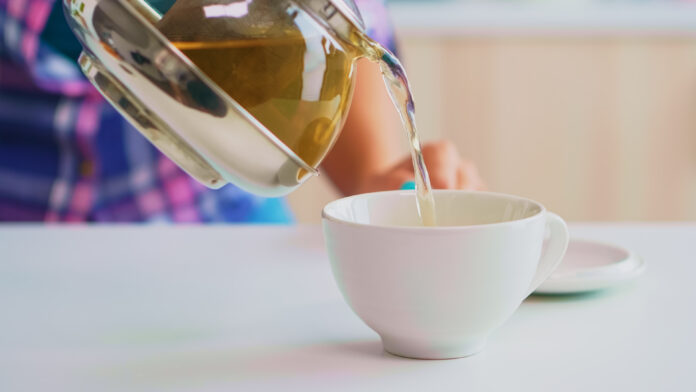Tea for Fluid Retention Edema, also known is a condition where body tissues accumulate excess fluid, leading to discomfort, swelling, and constipation. Common causes include poor nutrition and physical inactivity, hormonal imbalances, and certain health conditions. Drinking teas with diuretic and anti-inflammatory properties may help your body naturally reduce fluid retention by naturally diluting its stores of fluids; we will discuss which teas can combat water retention effectively as well as how they function, as well as a few questions designed to assist with managing this issue.
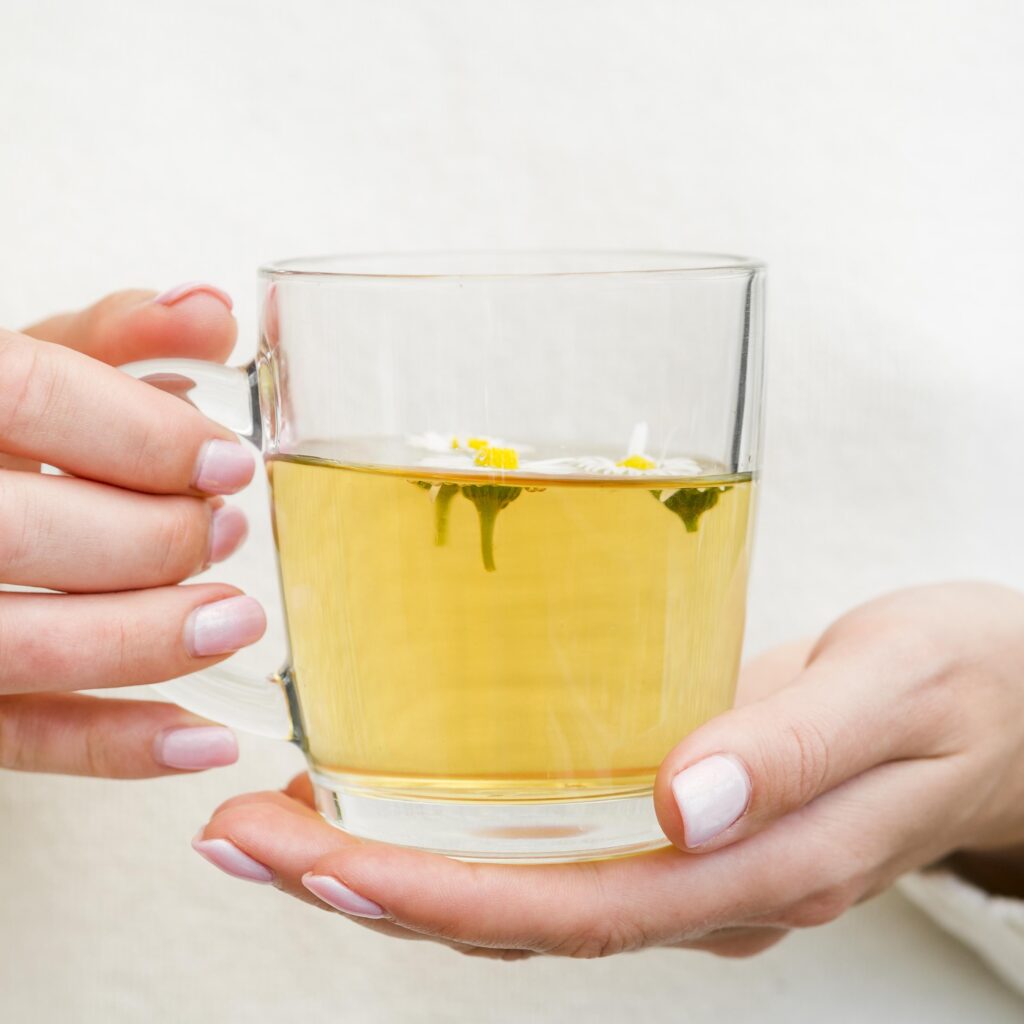
What is fluid retention?
Mess Fluid retention refers to an accumulation of water within the body’s tissues, most frequently seen in hands, feet, legs, and stomach. This can lead to symptoms such as swelling, heavyness, and discomfort, which may be influenced by lifestyle factors, diet, or health conditions. Tea may help restore fluid balance by flushing away excess sodium and water through the kidneys, providing natural remedies.
Are you searching for teas to reduce fluid retention?
Below are our picks for the top teas.
Dandelion Tea
Mes Dandelion tea is well known for its diuretic properties, which help flush out fluids from your body. Its key constituent, potassium, also helps reduce sodium accumulation, which in turn helps reduce swelling. Those suffering from frequent water retention will often use this tea and also benefit from its rich antioxidant content, which supports kidney and liver health, making it an excellent way to regulate water balance within their bodies.
Green tea
Is an abundant source of antioxidants and caffeine, both known for their diuretic effects to help manage fluid buildup and facilitate its removal from your system. Catechism found in green tea may help reduce inflammation, leading to decreased bloating and swelling. Furthermore, its caffeine content could increase metabolism to more effectively manage fluid retention in your body.
Hibiscus Tea
Mes Studies have demonstrated the efficacy of Hibiscus tea in lowering blood pressure and producing mild diuretic effects, aiding the kidneys in excreting more water and sodium from your system more quickly. Hibiscus also contains many antioxidants that could boost kidney health, ensuring a steady supply of blood to every part of the body.
Parsley Tea
Used as an all-natural diuretic, parsley tea helps stimulate kidneys to shed excess sodium and fluid from their bodies. Plus, parsley contains plenty of vitamin C as well as other antioxidants to combat inflammation, making regular consumption an effective remedy against symptoms associated with fluid retention.
Nettle Tea
Is an astringent diuretic that enhances kidney function by helping the body flush away excess sodium and water. Furthermore, its antioxidants actively fight inflammation, rendering this tea particularly beneficial for individuals experiencing swelling due to inflammation.
Ginger Tea
Ginger tea is known for its diuretic and anti-inflammatory properties. It helps reduce swelling through increasing circulation and digestion—both essential elements in managing fluid levels in the body. Ginger can also aid in flushing out toxins from your system, which benefits overall kidney health.
Corn-silk tea
Crafted from silky corn strands, corn silk tea acts as a diuretic to treat edema and kidney issues. By increasing urine production, this natural remedy helps decrease fluid retention in lower extremities while simultaneously maintaining balanced fluid levels without leading to dehydration.
Peppermint Tea
Although peppermint tea doesn’t act as an actual diuretic, it can assist digestion by soothing bloating and gas caused by fluid retention. Furthermore, peppermint tea aids in addressing digestive issues that lead to bloating and fluid retention, thereby alleviating the discomfort associated with symptoms like bloating. Additionally, peppermint tea may help alleviate symptoms related to fluid retention, such as gas, which could otherwise be exacerbated by digestive issues.
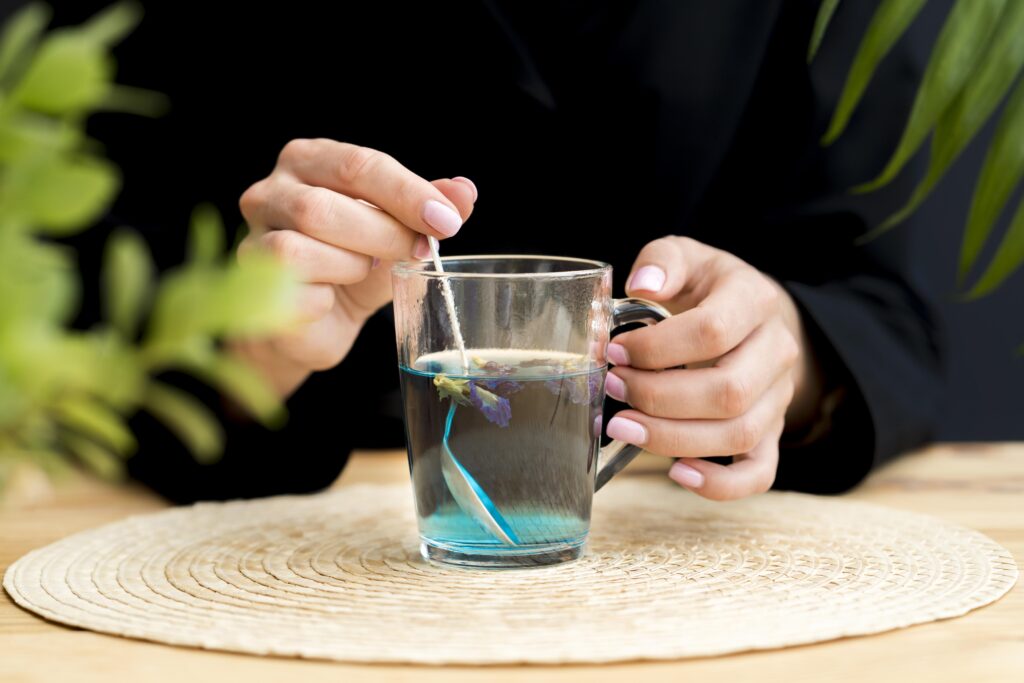

How These Teas Help with Fluid Retention
Tea can help alleviate fluid retention in several ways:
The diuretic properties of various teas: such as green, dandelion, and parsley varieties, help improve kidney function by increasing urine production and aiding the body in eliminating excess fluids.
It reduces sodium levels: The teas may help lower sodium levels by stimulating urinary production, flushing out sodium that contributes to fluid retention, and increasing urinary output.
Anti-Inflammatory Effects: Antioxidants found in tea can help reduce inflammation in the body, which is one of the main causes of fluid retention.
Improved Digestion: Tees such as ginger and peppermint help promote digestion and relieve symptoms associated with water retention, such as gas and bloating.
Use Tea to Fight Fluid Retention! Here’s How! Here are a few tips on using tea to fight fluid retention!
Stay Hydrated: Although it might seem counterintuitive, drinking plenty of tea and water may actually help your kidneys flush out more toxins more efficiently.
Reducing caffeine intake: While some green teas, such as the one mentioned above, do contain caffeine, excessive quantities can lead to dehydration, which in turn increases fluid retention.
Avoid excessive salt: To avoid adverse side effects associated with tea consumption, it’s wise to limit your sodium consumption as much as possible. Therefore, it would be ideal if your sodium consumption could remain within acceptable levels.
Get Advice From Health Care Professionals: If you have any medical conditions or are taking medication for any reason, consulting with a healthcare provider before adding diuretic teas to your daily regimen may be wise.
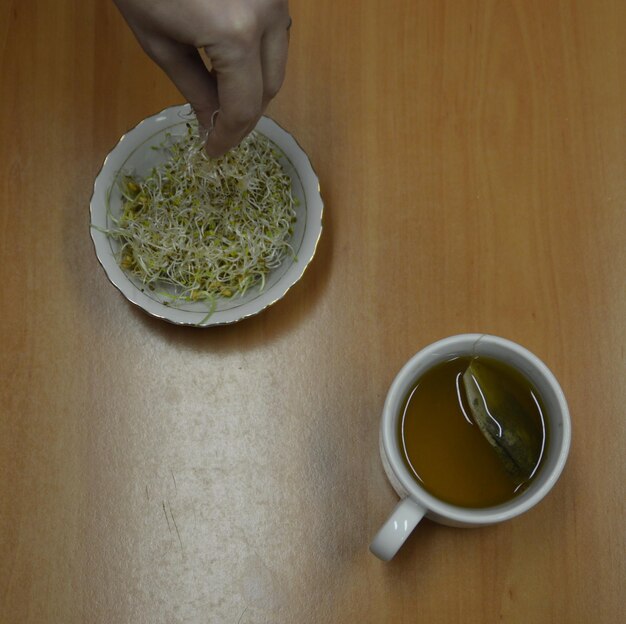

Find answers to frequently asked questions (FAQs) about tea and fluid retention here.
1. Can excessive tea consumption lead to dehydration?
While diuretic teas may lead to water loss, when used moderately, they typically do not lead to dehydration. Consuming excessive amounts of caffeine could potentially lead to dehydration, so it’s crucial to ensure adequate water intake.
2. How often should I consume tea to help reduce fluid retention?
Tea can provide powerful diuretics, so starting small to observe how your body reacts and adjusting dosage accordingly should provide maximum benefits.
3. Are there any negative side-effects from taking diuretic herbal teas?
Drinks containing potassium supplements tend to be safe when taken in moderation; however, excessive consumption could lead to low potassium levels, dehydration, and discomfort in the stomach. If you suffer from kidney issues, it would be wise to consult your physician prior to drinking such drinks.
4. Is tea an effective means for maintaining fluid retention during gestation?
Certain diuretic teas, such as nettle and dandelion, are safe during pregnancy; however, prior to commencing any herbal remedy, it is wise to consult an experienced healthcare provider in order to make an informed decision and avoid any potential issues.
5. How long must one wait before taking tea in order to reduce fluid retention?
Diuretic herbal teas vary, and their effects vary from person to person. Some may notice an improvement within hours, while for others it could take several days of consistent consumption before showing any significant results. Consistency is key if you want your teas to yield results!
6. Are there other natural solutions available to treat fluid retention besides tea?
Other ways of managing sodium consumption and increasing potassium-rich food, regular exercise, and staying hydrated include decreasing sodium consumption and eating foods rich in potassium, such as cucumbers, watermelons, and celery, known for their natural diuretic properties.
7. Are sweeteners necessary in my tea to retain fluids and avoid dehydration?
The addition of lemon or honey is generally safe and can enhance the flavor, but be wary not to overdo it, as too much sugar may cause bloating and counteract the benefits of tea.
8. Does green tea offer the answer to retaining fluid?
Tea can be beneficial in terms of its mild diuretic and antioxidant qualities, making it suitable for anyone’s unique preferences and requirements. Parsley and dandelion teas are particularly useful for maintaining fluid retention.
9. Are these teas suitable for children to help manage fluid retention?
Some herbal teas, like mild ginger or peppermint varieties, may be suitable for young children when consumed in small doses. Before giving herbal teas to your children, however, please consult a pediatrician for guidance.
10. Should I drink hot or cold tea to decrease fluid retention?
Cold and hot tea can both provide numerous health benefits; however, hot tea could increase digestibility and absorption rates. Select the temperature that best fits your preferences and comfort level.
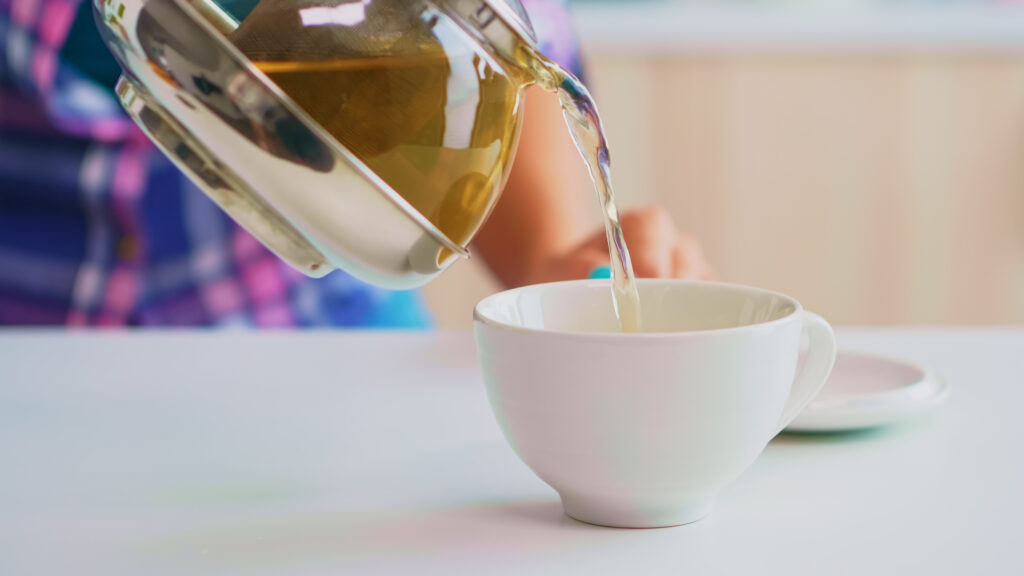

Tea for Fluid Retention: Final Thoughts on Tea as a Solution
Teas like dandelion and green tea, parsley, and hibiscus can help your body control fluid retention naturally, with anti-inflammatory and diuretic properties to relieve symptoms like bloating and swelling while simultaneously improving overall well-being and comfort. As with all natural remedies, consistent and controlled usage is vital in order to see any positive outcomes.

